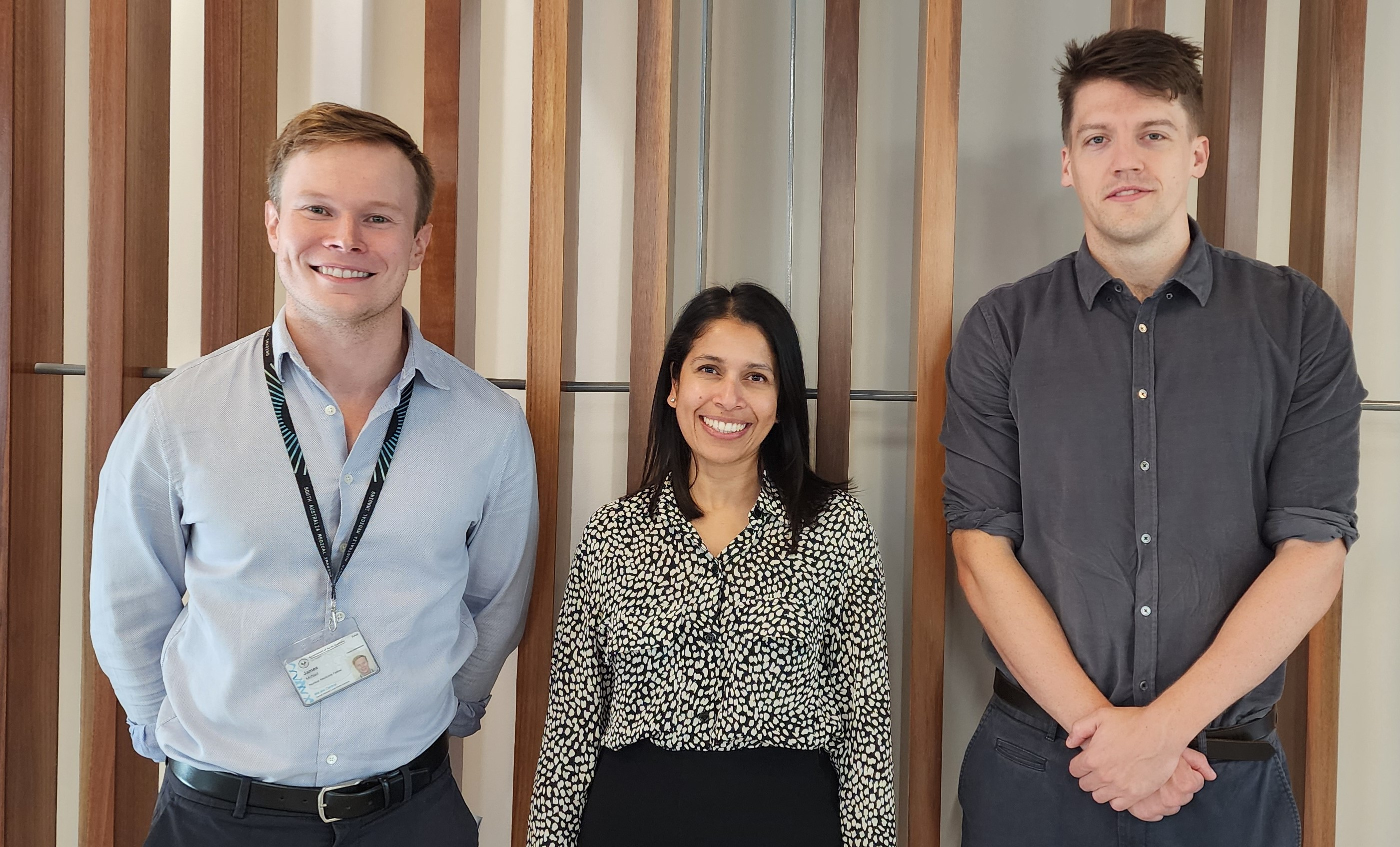Shaping the Future of Pituitary Tumour Care
A unique collaboration between physicians and surgeons is transforming the diagnosis and treatment of pituitary tumours in South Australia.
.png)
The SA Pituitary Research Group is a multidisciplinary team of surgeons, physicians and other researchers working together to improve care for patients with pituitary tumours.
Spearheaded by Associate Professor Sunita De Sousa MBBS MSc PhD FRACP, Staff Specialist in Endocrinology and Clinical Genetics, this collaborative group is tackling some of the most pressing questions in pituitary research—from genetics and imaging to surgery and medical treatments.
“Pituitary tumours account for around 15% of all tumours of the central nervous system,” said A/Prof De Sousa. “They can cause vision loss, hormonal problems, and other serious, complex long-term health impacts. Our goal is to improve every stage of care—better diagnosis, better treatment, better surveillance, and better prediction of outcomes for patients and their families.”
A team effort across disciplines
Another thing that sets the group apart is the focus on collaboration with true multidisciplinary representation including Endocrinology, Neurosurgery, ENT Surgery, Radiation Oncology, Clinical Genetics, Nuclear Medicine, Radiology, Pathology and even Cardiology. Clinical meetings and research planning are aligned so that ideas can translate quickly from bench to bedside, “The underlying achievement has been all the different specialties working towards unified goals, I believe this breadth of disciplines sets apart our pituitary research group” said A/Prof De Sousa.
The group includes early career researchers and clinicians as well as senior experts. A/Prof De Sousa explained that the group is driven by the recent, current and incoming PhD candidates, including:
- Dr Chris Ovenden, MBBS MSurg Mphil, Neurosurgery Registrar and NRF Abbie Simpson Clinical Fellow, undertaking a PhD in pituitary tumour surgery and pathology. [photo]
- Dr James McNeil, MBBS FRACP FAANMS, Endocrinologist and Nuclear Medicine Specialist and NRF Research Grant Recipient, undertaking a PhD in pituitary tumour imaging. [photo]
- Dr Nick Candy, MBBS MS PhD, Neurosurgery Registrar and former recipient of the NRF Abbie Simpson Clinical Fellowship, completed a PhD in endoscopic pituitary surgery. [photo]
- Dr Edward Mignone, MBBS MMed, Endocrinology Registrar, commencing a PhD in pituitary tumour assessment 2026.
Together, their work is shaping local and national practice in pituitary tumour care, even featuring in major international guidelines.
Current research projects
A major area of research is fluorescence-guided surgery, led by Dr Chris Ovenden. His project, supported by an NRF research grant, is investigating how pituitary tumours differ from normal pituitary tissue at the molecular level—specifically, whether certain receptors or tissue properties can help surgeons better identify tumour margins in real-time during operations.
This includes:
- Analysing membrane receptor differences between tumour and healthy tissue.
- Investigating whether pituitary adenomas emit different fluorescence under certain wavelengths of light.
- Studying whether the medication cabergoline, used to treat prolactinomas, causes tumour scarring that could complicate later surgery.
Dr Nick Candy’s earlier NRF-funded research also focused on preserving pituitary function during surgery. His work has helped map the learning curve in endoscopic pituitary surgery and examine how surgical experience correlates with post-operative hormonal complications.
Cutting-edge imaging tools
Another world-first project, co-led by A/Prof De Sousa and Dr James McNeil, is testing the use of a novel radiotracer for the identification of prolactinomas—a type of tumour that overproduces the hormone prolactin.
Currently, there are no functional imaging scans available for diagnosing prolactinomas or predicting whether they will respond to dopamine agonist therapy. This new scan could help:
- Diagnose tumours more accurately.
- Predict treatment response.
- Guide surgical planning.
A focus on genetics and long-term care

As a clinician-scientist, A/Prof De Sousa is also leading investigations into the genetic basis of pituitary tumours, particularly familial cases. Her team recently published a study showing an increased prevalence of CHEK2 gene mutations in people with pituitary adenomas—marking the first known link between this breast cancer gene and pituitary tumours.
She hopes her work in pituitary tumour genetics will ultimately lead to better surveillance, earlier diagnosis, and more personalised treatment options for patients and their families. The group’s plans include:
- Strengthening interdisciplinary collaboration to promote knowledge-sharing between clinicians and researchers, helping translate discoveries into patient care more rapidly.
- Building local expertise in pituitary tumour management by integrating clinical experience with research insights—ultimately improving diagnosis, treatment, and long-term outcomes.
- Expanding the existing Royal Adelaide Hospital Pituitary Database into a statewide registry to collect high-quality clinical and research data.
- Deepening partnerships with interstate and international research collaborators.
Looking ahead
With the support of the NeuroSurgical Research Foundation and other funders, the SA Pituitary Research Group is driving innovation.
If you would like to learn more about the SA Pituitary Research Group and their activities or are a researcher or clinician keen to collaborate, please contact info@nrf.com.au for further information.




